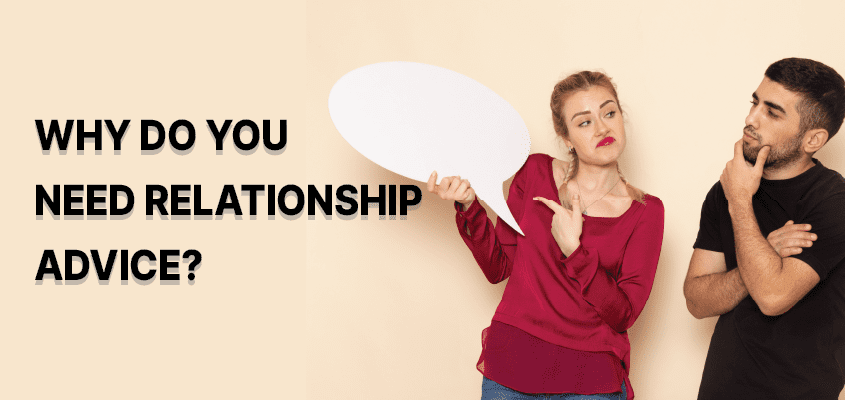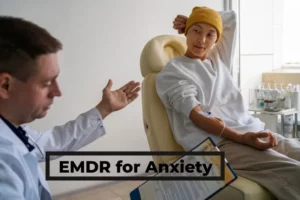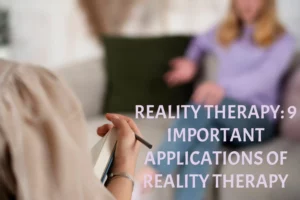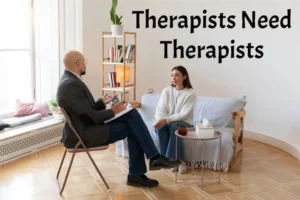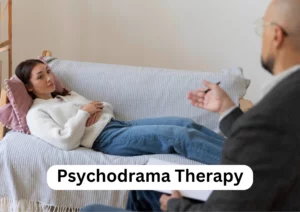Introduction
Pushing a committed relationship requires effort. We have both good and bad moments, along with teamwork and conflicts. Many individuals find themselves needing help, clarification, and needing relationship advice.
What is Relationship Advice?
Relationship advice refers to guidance or recommendations offered to people in a romantic relationship. Even though they are rewarding to experience, challenges can come like riddles in relationships. In such situations, relationship advice from trusted sources can help people avoid a relationship breakdown [1].
Relationship advice can come from various sources, including friends, family, books, or professionals such as therapists and counselors. However, it is essential to understand that not all advice is equivalent. When seeking advice on a relationship, it is necessary to find trusted sources with deep knowledge of what it means to be in a committed relationship.
One must also have a reason to seek relationship advice. If there is no apparent conflict and one feels satisfied in commitment to the partner, seeking advice “in general” can be counter-productive. Usually, people seek advice on improving communication, trust, resolving conflicts, building intimacy, etc.
How Will You Get help with Relationship Advice?
Relationship advice can help people grow and develop as individuals as they learn to identify their needs and boundaries and communicate them effectively to their partners. One can get help in many ways when seeking relationship advice, and some of these ways include:
-
Clarifying and naming the problem:
When talking to others and seeking advice, pinpoint the issue by explaining(For example, poor communication). There is great power in naming the problem, and it can help find better solutions [2].
-
Revealing different perspectives:
Seeking advice can show different perspectives on a problem [3] and thus broaden a person’s worldview and knowledge.
-
Receiving research and experience-backed answers:
Especially when taking help from professionals, one receives advice and answers based on theory and years of practice.
-
Improving the relationship dynamics:
Taking advice around relationships can improve trust, communication, and other factors.
-
It gives a person space for reflection:
Taking advice can create a space for self-reflection, which is a self-growth tool for promoting well-being [4] and resilience in an individual [5].
-
Prompts a person to learn new skills:
If one faces problems in a relationship, they will likely need to learn new skills to tackle them.
What are The Benefits of Relationship Advice?
Relationship advice can help a person in many ways. Research suggests that intervention in couples counselling reduces distress and creates positive changes in the behaviours of those involved [6]. Sound advice will impact some areas. These are the following :
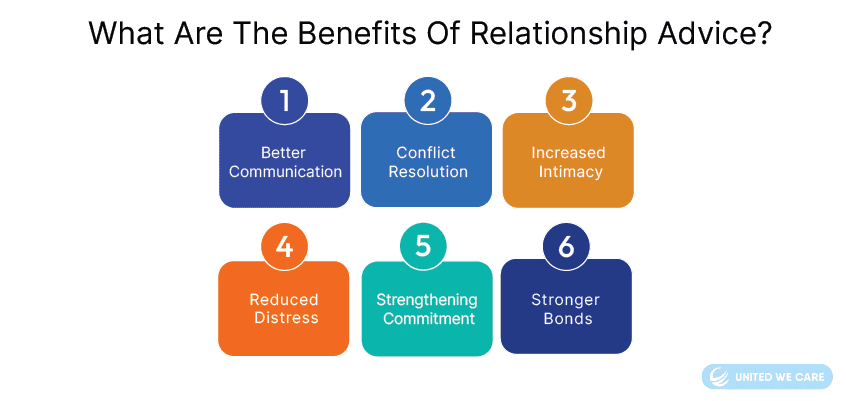
- Better Communication: Relationship advice can help you improve your communication skills to express your feelings and needs more effectively and understand your partner better.
- Conflict Resolution: It can also provide strategies to resolve conflicts and disagreements healthily and respectfully.
- Increased Intimacy: Good advice can help deepen your emotional and physical intimacy with your partner, leading to a more satisfying relationship.
- Reduced Distress: People often seek help when distressed by an issue. Expert intervention in romantic relationships helps in reducing distress and improving adjustment between partners [7]
- Strengthening Commitment: Relationship advice can offer suggestions on maintaining your commitment to your partner and keeping your relationship strong over time.
- Stronger Bonds: Couples can develop a deeper emotional connection by following relationship advice, leading to stronger bonds and a more fulfilling relationship.
How to Find Good Relationship Advice?
Many people often contact their friends and family for advice on relationships, and many other sites, magazines, and articles for relationship advice. However, one needs to be careful with whom to trust.
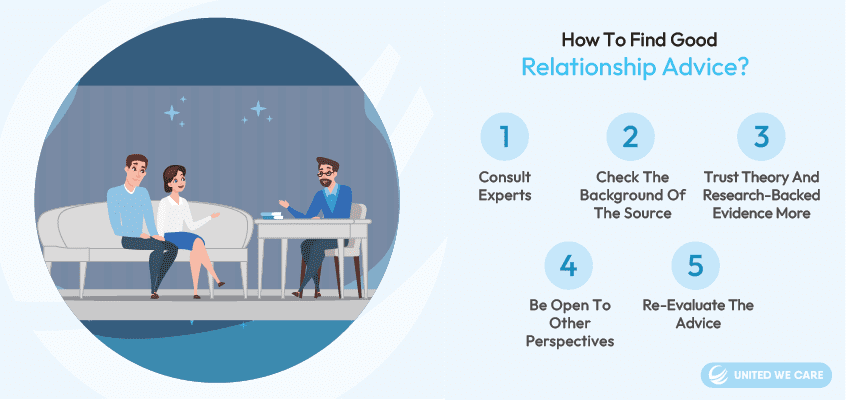
- Consult experts: It is always better to consult experts when dealing with issues in romantic relationships. Psychologists and couple’s counselors can be of great help.
- Check the background of the source: Not all advice, especially that found online, comes from an expert, and it is essential to check the credentials and experience of the person giving you advice. For online help, one can connect to websites like United We Care [8]. BetterHelp has also listed ten trusted online resources for advice [9].
- Trust theory and research-backed evidence more: Family and friends tend to advise from a biased and emotional perspective. While a good and supportive friend can give sound advice, it is better to turn to theories and research-backed evidence when seeking help.
- Be open to other perspectives: People seeking advice want validation of their actions and beliefs, and such a viewpoint will keep that person stuck. Being open to hard truths and different perspectives on a relationship is essential.
- Re-evaluate the advice: Irrespective of who you consult, reflecting upon and evaluating the recommendation is essential. It will help you ascertain whether the direction works for you or not. It also allows you different further clarify the problem if the advice is other than the solution.
By following these tips, you can find good relationship advice that is helpful, practical, and aligned with your needs and goals.
When Should You Seek Relationship Advice?
The most common reasons for seeking professional advice in relationships are when there are communication issues and a lack of emotional affection [10]. However, one can seek relation problems advice when you and your partner(s) face issues in a relationship, and despite efforts, you cannot resolve them. So these situations which may require advice can look like this:
- Frequent fights and conflicts between partners
- Difficulty communicating needs and boundaries with each other
- Issues concerning emotional or physical intimacy
- Either partner facing a mental health issue
- Betrayal or infidelity in a relationship
- Major life decisions which may affect the relationship
- When life-altering of participants meet a stressor or life-altering event
- When considering ending a relationship but requiring space for reconsideration and communication.
Online resources to make relationships exciting might be enough, while long-term couples counseling is the solution. It is best to discuss with one’s partner and then seek help.
Conclusion
Everyone, at some point, may reach a stage in their relationship where they feel confused and in need of advice. Relationship advice can help a person grow and improve relationship dynamics. One can turn to various resources to get relationship advice, but ensuring that the guidance one receives is genuine and valid is essential.
References
- “Relationship advice: The basics, Problems, Tips & More,” Marriage Advice – Expert Marriage Tips & Advice. [Online]. Available here: [Accessed: 24-Apr-2023].
- R. Makeover, “Power of Naming,” The power of naming in Psychotherapy. [Online]. Available here: . [Accessed: 24-Apr-2023].
- David A. Garvin and Michael Roberto and F. Gino, “The art of giving and receiving advice,” Harvard Business Review, 21-Jan-2015. [Online]. Available here: [Accessed: 24-Apr-2023].
- R. Harrington and D. A. Loffredo, “Insight, rumination, and self-reflection as predictors of well-being,” The Journal of Psychology, vol. 145, no. 1, pp. 39–57, 2010.
- R. G. Cowden and A. Meyer-Weitz, “Self-reflection and self-insight predict resilience and stress in competitive tennis,” Social Behavior and Personality: an international journal, vol. 44, no. 7, pp. 1133–1149, 2016.
- A. Christensen and C. L. Heavey, “Interventions for couples,” Annual Review of Psychology, vol. 50, no. 1, pp. 165–190, 1999.
- D. Gutierrez, R. G. Carlson, A. P. Daire, and M. E. Young, “Evaluating treatment outcomes using the integrative model of brief couples counseling,” The Family Journal, vol. 25, no. 1, pp. 5–12, 2016.
- “Mental health counseling and therapy platform – united we care.” [Online]. Available here: [Accessed: 24-Apr-2023].
- “Save your relationships with Best Relationship Advice Tips,” BetterHelp. [Online]. Available here: [Accessed: 24-Apr-2023].
- B. D. Doss, L. E. Simpson, and A. Christensen, “Why do couples seek marital therapy?” Professional Psychology: Research and Practice, vol. 35, no. 6, pp. 608–614, 2004.

